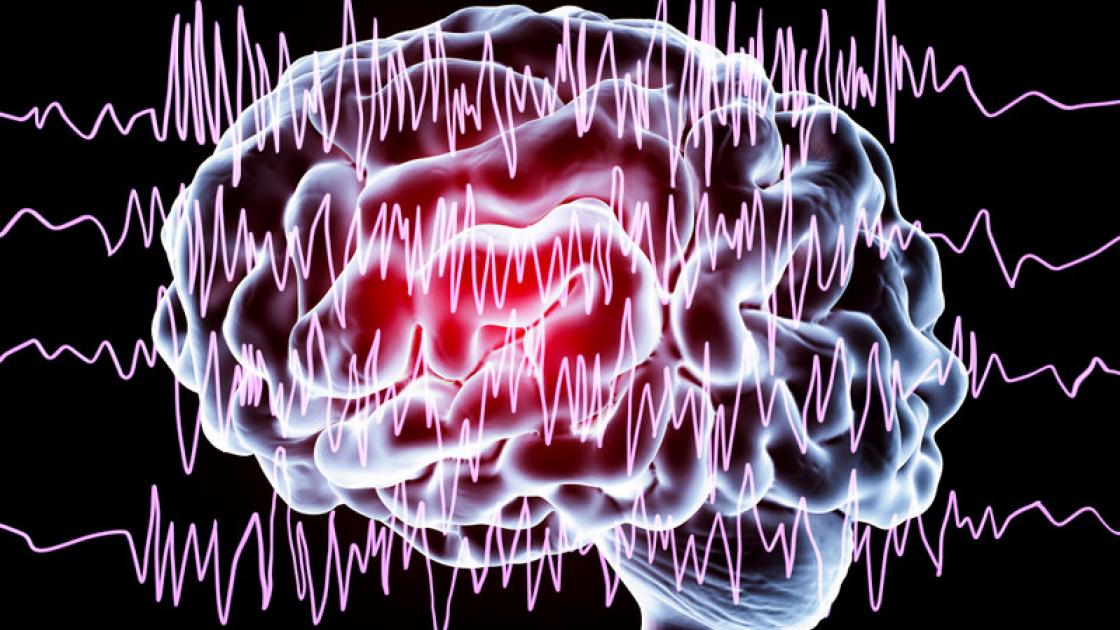
What is epilepsy?
Epilepsy is a common yet frequently misunderstood neurological disorder. SIU Medicine would like to help our community become more educated about the condition. Read on to discover five key things about epilepsy—including what to do if someone has a seizure in front of you.
5 things you may not know about epilepsy
1. Epilepsy is a condition that affects the central nervous system.
The brain sends messages throughout the body using chemicals and electrical energy. When a person has epilepsy, they periodically experience over-activity or "misfiring" in the brain's electrical activity. These misfires will then cause a seizure.
The main categories of epileptic seizures (also known as convulsions) are:
- Partial or focal seizure: a seizure caused by abnormal electrical activity in one part of the brain
- Generalized seizure: abnormal electrical activity affecting both sides of the brain at the same time (sub-types include absence seizures, tonic-clonic seizures and myoclonic seizures)
Signs and symptoms of an epileptic seizure vary. Most seizures last between 30 seconds to 2 minutes, but some can last longer. During a seizure, a person may experience:
- Twitching of one part of the body
- Difficulty talking
- Tingling
- Staring off into space
- Sudden jerking or stiffening of the muscles
- Eyes rolling back
- Slumping, going limp, or falling over
- Loss of control of bowel or bladder
2. Children can outgrow epilepsy.
Epilepsy is the most common type of pediatric brain disorder. But fortunately, about two-thirds of kids diagnosed with epilepsy grow out of it by the time they reach their teenage years.
3. All types of epilepsy cause seizures, but not all seizures are caused by epilepsy.
About 1 in 20 people will have a seizure at some point in their lifetime, but only about 1 in 26 people will have epilepsy. The only way to know for sure if you have epilepsy is to consult with a doctor.
Seizures, including those caused by epilepsy, may seem to come on at random, or they can be brought on by certain risk factors, including:
- Stress
- Acute illness
- Lack of sleep
- Being overstimulated (e.g., playing a computer game for too long)
- Certain medications or substances, including alcohol and certain illicit drugs
If you or a loved one experiences a seizure for the first time, if a seizure leads to difficulty breathing, if a seizure lasts 5 minutes or more, or if seizures are increasingly frequent or severe, seek emergency medical care immediately.
4. You can help a person stay safe when they are having a seizure.
Seizures can look a bit scary, but in most cases they cause a person no pain or serious harm. If you witness a person having convulsions lasting more than 5 minutes, here are a few things you can do to help keep them safe:
- Remain calm and stay with the person for the duration of their seizure. Talk to them in a reassuring voice.
- Don't restrain or hold the person.
- Never put anything in their mouth.
- Move hard, sharp and otherwise potentially dangerous objects away from the person (e.g., furniture, glasses, backpacks).
- Help the person lie down on the floor or a flat comfortable surface.
- Notice characteristics about the seizure (including symptoms and duration) so you can record information about the seizure.
5. Epilepsy can be managed with individualized treatment.
Doctors can diagnose epilepsy using physical exam and history, blood tests and imaging studies like EEG or MRI brain scans and other techniques. Once a person is diagnosed with epilepsy, their treatment usually starts with medications that can reduce the severity and frequency of seizures. If medications aren't enough on their own, some people with epilepsy may also receive:
- Dietary modifications (for example, research dating back to the 1920s suggests that a ketogenic diet is effective for children with drug-resistant epilepsy)
- Implantable medical devices
- Surgery on the brain
Looking for an epilepsy specialist near you?
If you'd like to consult with a provider who has advanced training in the diagnosis and management of epilepsy, contact SIU Medicine at 217-545-8000 to schedule a consultation today.



